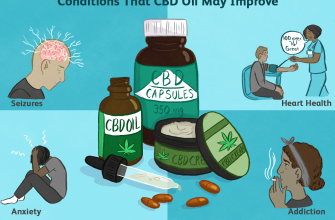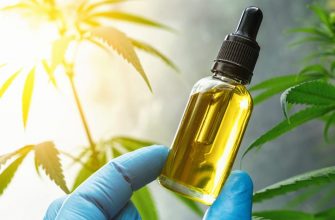Treating asthma with CBD
Soaking rats from asthma by injecting the substance o-albumin (a protein in the blood of birds) caused inflammation in the bronchi of rats with a corresponding increase in the level of cytokines in the blood. CBD treatment reduced the release of cytokines and their blood levels dropped. CBD has been found to have medicinal potential to mitigate the inflammatory response in asthma.
Besides suppressing inflammation, CBD suppresses mucus production and thus reduces airway obstruction and prevents flare-ups of asthma in humans. The cytokine IL-13 is a cytokine that causes increased mucus production in the airways. A recent study found that CBD lowers the level of this cytokine in the airways, protects lung tissue from inflammation, and thus heals and helps with respiratory ailments and asthma.
T cells also support and assist by entering the respiratory system and producing cytokines in response to asthmatic stimuli as an allergen. CBD suppresses the T cell response and thus suppresses the release of cytokines. A 1999 study (Waksman et al) showed that cytokine tumor necrosis factor (TNF) plays an important role in the formation of inflammation and in the severity of asthma. CBD Reduces cytokine levels TNF Thus, it helps to relieve inflammation.…
Recent studies show that soaking animals for asthma in animals resulted in increased levels of anandamide in the respiratory tract fluid. It turned out that the higher the level of anandamide, asthma. More relaxed.
CBD increases anandamide levels by inhibiting the enzyme FAAH, which breaks down anandamide, thereby helping anandamide widen the airways and soothe asthma. Based on these results – asthma treatment using Oil CBD A promising option with great potential for the near future.
For a more detailed study CBD As a natural remedy for asthma:
Cannabidiol reduces airway inflammation and fibrosis in experimental allergic asthma.
Allergen provocation increases the anandamide content in the bronchoalveolar fluid in patients with allergic asthma
Cannabinoid receptor activation prevents antigen-induced asthmatic response in guinea pigs.
Endogenous cannabinoid receptor agonists suppress neurogenic inflammation in the airways of guinea pigs.
Evaluation of serum cytokine levels and the role of cannabidiol treatment in an animal model of asthma
Chronic obstructive pulmonary disease COPD: Chronic obstructive pulmonary disease
A disease that results in airflow restriction that is not completely reversible. The disease is characterized by a running course and, at the same time, exacerbations. Typical symptoms include exertional dyspnea, chronic cough, and varying amounts of phlegm. Smoking is the most significant risk factor. The main treatment for exacerbations of the disease includes oxygen, bronchodilators and steroids when administered systemically (liquid or powder spray). In patients with moderate to severe exacerbation, antibiotic treatment is added. Quitting smoking significantly reduces mortality and the risk of further exacerbations.
Risk factors:
smoking – Smoking cessation should be encouraged whenever possible.
Air pollution – Inside the house (oil for frying, heating in an unventilated room) and outside the house, industrial air pollution (dust and chemicals).
Prenatal factors – Any factor that affects lung maturation before birth and during childhood (low birth weight, lung infections, etc.) increases the risk of developing the disease later in life.
CBD As a natural treatment for chronic obstructive pulmonary disease.
For decades of medical cannabis research, researchers have pointed to the effectiveness of cannabis in treating diseases and symptoms associated with lung and respiratory conditions. All the results of individual studies and individual reports have shown that reducing inflammation helps patients with chronic bronchitis, even though they ate smoking.
Activation of CB1 and CB2 receptors has been shown to reduce airway inflammation.
An animal study summarized the results and found that CBD has great potential as an anti-inflammatory drug and a lung function enhancer. Another study found CBD to be beneficial after acute lung injury, especially in preventing subsequent infections and inflammation.
CBD As a natural remedy for bronchitis
CBD may help bronchitis and other chronic obstructive pulmonary diseases by widening the airways, decreasing tracheal resistance, and increasing airflow to the bronchi. Another study found that activation of healthy CB1 receptors prevents contraction of the smooth muscle surrounding the air vessels of the lungs and also helps in dilating the airways.





